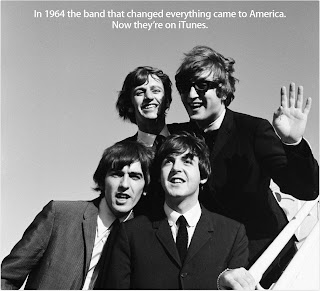For every professional, there is an amateur. For every fact, there's a fabrication.
In our daily interactions we learn to assess the relative reliability of sources of information. For example, if you hear from a classmate that a blizzard is coming, you probably won't count on having a snow day (though you might hope). However, if you hear that a blizzard is coming from a TV meteorologist, you'd be more inclined to believe, as the meteorologist is a professional. Ultimately, the only way you will 100% believe that the blizzard is for real is if you look out your window and see it happening with your own eyes. Analyzing credibility of a source is vital to human decision-making. Trusting in professionals rather than non-professionals is one way people judge whether or not to believe in a piece of information.
Another tool for assessing credibility is prior history. For instance, if you had an older sibling when you were a kid, you probably figured out that they often joke and feed you false information. Your parents, on the other hand, were trusted authorities. I had a friend whose older brothers convinced him that the fancy miniature scoops of whipped butter at a restaurant were actually miniature scoops of ice cream (
too good to be true?). He took a giant spoonful and ate it in one bite (realizing to his horror that the restaurant had not, in fact, left little scoops of ice cream on the bread plates), and his older brothers had a good laugh over it. After that incident, Manny considered his older brothers to be a much less credible source of information. This new assessment would affect future decisions.
Finally, we have the "majority rules" consideration. If 17 people tell you that your professor changed the due date of an assignment and only 1 person said there was no change, you would probably accept the changed date as fact. It can be a
pretty compelling argument.So, how does this all affect our ability to analyze credibility of data on the Internet? Let's use
Reddit.com as an example.
Reddit is a massive forum divided into sections of interest called "sub-reddits" (with titles such as World News, Gaming, Technology, etc). Most threads are started with a user posting a link to a news item from an outside source. Other users can then read the article, comment, and "upvote" or "downvote" based on whether they thought the post was interesting or just agreeable to them. A thread with too many downvotes is deleted. Usually, only links that are deemed trustworthy by Redditors earn enough upvotes to reach the front page.
How, as a Reddit user ("redditor"), does one decide which sources to trust? Here's what I personally look out for in analyzing credibility:
1) Is the OP (original poster) obviously trolling? The more potentially offensive the original post is, the more likely it is that the OP is trying to get a rise out of other users. If the link posted is a screen capture of a website rather than an actual link (or if it's a screen capture with a link that is conveniently no longer working), there's a chance that the OP is just messing around. Clicking the OP's username provides a list comments they've made on other threads. If the OP's comment history includes a lot unnecessary arguments and accusations of trolling from other users, I wouldn't trust them as a source of information.
2) Is the OP an idiot/13-year-old/13-year-old idiot? Spelling and grammar are key for screening out the preteens. Some key phrases that should indicate that the OP is too dumb to be relied on: "I herd it on fb from my cuzn's friend's bro", "Y would they lie on internet?", and "Send this to 14 ppl or tomorow you will DIE!!!11!!"
3) Is the OP who they say they are? Redditors can be very picky about this one. If you claim to be a celebrity or professional authority of some sort on Reddit, you must establish credibility by proving your credentials. For example, any idiot can sit in front of a screen and say that he's Stephen Colbert. But other Redditors won't believe him until he submits a picture of Stephen Colbert (himself) holding a piece of paper with his username written on it or
some sort of Reddit swag (the "pics or it didn't happen" rule).
4) If the original post is a link, is the linked source credible? If I'm going to believe that Obama and Dick Cheney are having an affair, I have to
really trust the source I'm getting that information from. If the OP links to a handful of flashy gossip websites with lots of pop-up ads for weight loss products, I'm not buyin' it. However, if the OP links to The Wall Street Journal
and The New York Times
, I'd have to conclude that maybe Dick Cheney is less of a homophobe than I thought.
It's hard to trust a screen, but with some healthy skepticism and a little bit of analysis, we can decide which sources on the Internet are credible, as we do in real life. The most important rule? Don't trust anything you find on Yahoo! Answers.
Ever.












